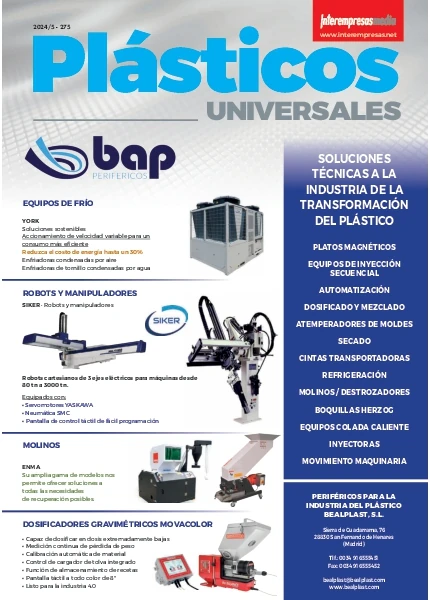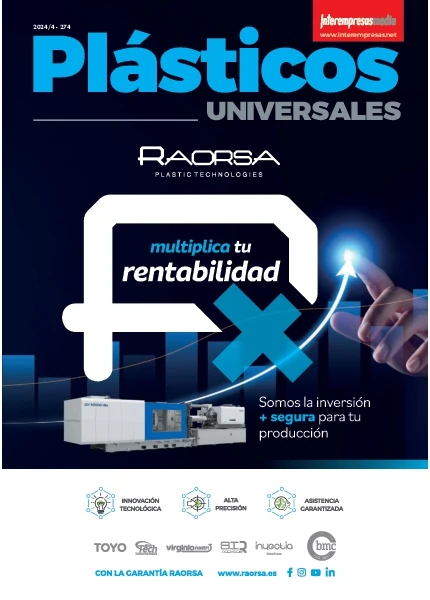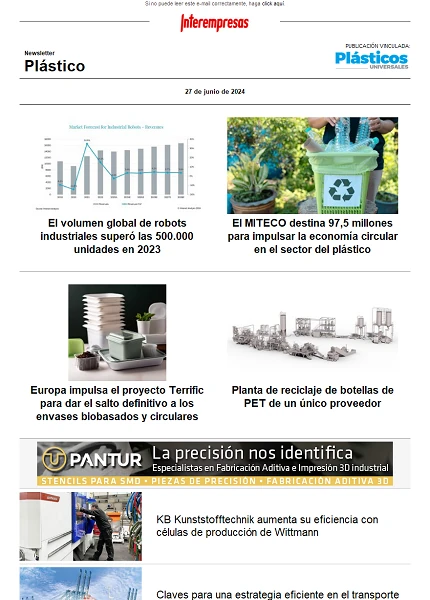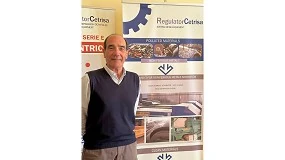Legislative obligations of plastic for food packaging
April 27, 2009
The need to manufacture containers today in day is very large as well as the need to make a sustainable product, what he has done that he has been recently adopted the European regulation on the use of recycled plastic for the manufacture of materials suitable for contact with foodstuffs.
Naturally, the recycled food contact plastics must be subjected to strong control measures to guarantee the principles set out in the legislation for such products, especially the assignment of components from the plastic to the food causing an unacceptable alteration of the organoleptic characteristics or the composition of food either that they endanger the health of the people.
This basic principle is that reflected in the regulation framework 1935 / 2004 which, in addition to the inertia, establishing traceability, labelling and Declaration of conformity as fundamental pillars of any material that will be in contact with food. As a specific measure relating to food contact plastics, are Directive 2002/72/EC and its subsequent amendments. Basically, they modify the positive (by adding or introducing restrictions) lists either prohibit drugs. However, it is important to have them all here.
The directive and the majority of its amendments have been transposed into Spanish law in RD 866/2008.
In order to maintain at all times the updating of the lists of substances, should be regularly visit the website of the Commission: http://ec.europa.eu/food/food/chemicalsafety/foodcontact/index_en.htm
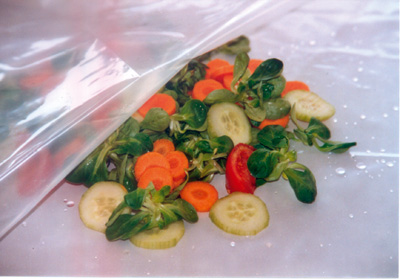
1 Inertia
As inertia we could say that it is the resistance that opposed the packaging to be altered by the environment around him (especially for food). It would be the inability to assign components to the food (and, as a result of altering it, contaminate or even endanger health). In practice, the inertia is determined by overall migration test (the sum of all components that can migrate) either specific (that compound with special provisions). The global migration of plastics tests are almost completely standardized. However, the specific dependent largely laboratories (for those not standardized compounds). It is however true that there is a general guide in the form of rule to obtain extracts of migration that leaves a little in the air the determination of the compound in question, which, on the other hand it will depend on the standard analytical techniques in these cases such as GC-MSHPLC and ICP.
2 Labelling
The presentation of the information has to be done in such a way that there is no confusion, the characters must be legible, indelible and in the language of the country of sale. In the case of packaging, labelling could vary depending on subsequent intention to reuse the packaging (as it is the case of the boxes that are then used to keep food at home). The labelling must also include the name of the manufacturer.
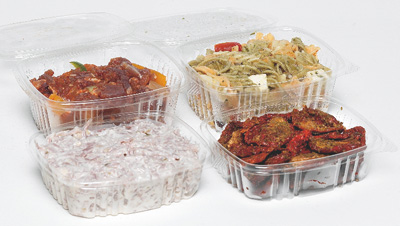
3. Declaration of conformity
The Declaration of conformity is a document which should prepare the plastic container manufacturer and must be supported by the necessary documentation. It's a document that contains:
● Identification of the company with your address.
● Identification of containers.
● Indication on the compliance of containers with the regulation 1935 / 2004 and the directives in force (2002/72/EC and its amendments subsequent to the case of plastics).
● Information on the presence of substances subject to restrictions and compliance with such a restriction.
● Values obtained in migration tests (global and specific, if any).
● Specifications on the use of the material (types of foods that may contain, duration and temperature of treatment and packaging, surface/volume ratio).
The document must contain the date on which has been drawn up and supporting documentation consists of certificates from suppliers and laboratory test reports.
4 Traceability
Traceability shall be ensured at all stages to facilitate control, the withdrawal of defective products, consumer information and the attribution of responsibilities. In this regard, it is worthwhile to mention that, as indicated the regulation frame, materials in contact with food must be made in accordance with the regulation 2023 / 2006 [5] concerning the good manufacturing practices.
[1] Regulation (EC) 282/2008 of the Commission, on March 27, 2008, on materials and recycled plastic articles intended to come into contact with foods and amending Regulation (EC) No. 2023 / 2006.
[2] Regulation (EC) 1935 / 2004 of the European Parliament and of the Council of 27 October 2004 on materials and articles intended to come into contact with food and that repealing directives 80/590/EEC and 89/109/EEC.
[3] Real Decreto 866/2008, 23 of may, which approves the list of permitted substances for the manufacture of plastic materials and articles intended to come into contact with food and regulated certain test conditions.
[4] EN 13130-1 (2002) materials in contact with foodstuffs. Part 1: Guide to test methods for the specific migration of substances in plastics in food, and the determination of substances in plastics and the selection of conditions of exposure to simulated food, which are liquids used for practical reasons that simulate be real foodspecifically, this type of 'food' is made of water, 3% aqueous acetílico acid, 10% aqueous ethanol and olive oil.
[5] Regulation (EC) 2023 / 2006 of the Commission on 22 December 2006 on good manufacturing practice for materials and articles intended to come into contact with food.


